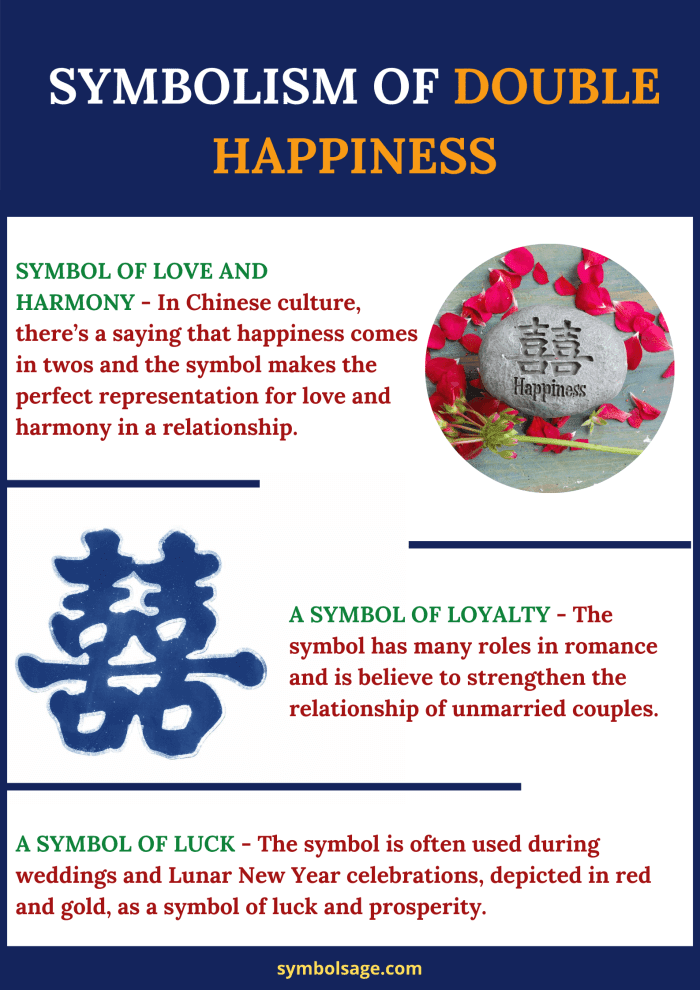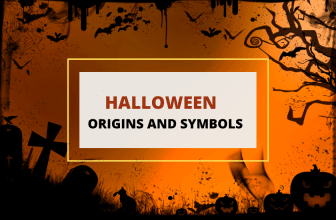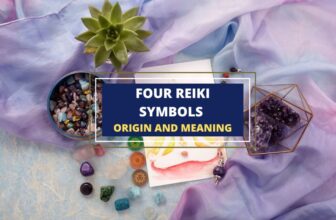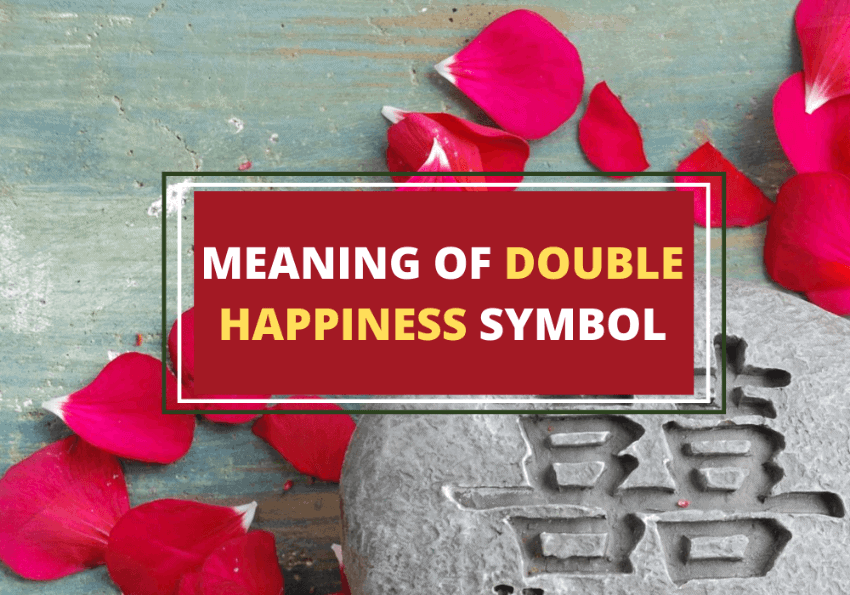
Table of Contents
Commonly used in feng shui as a love cure, the double happiness symbol is comprised of two connected Chinese characters xi and is frequently seen as a decorative motif in traditional weddings.
Here’s a closer look into the origin and significance of the double happiness symbol.
History of the Double Happiness Symbol
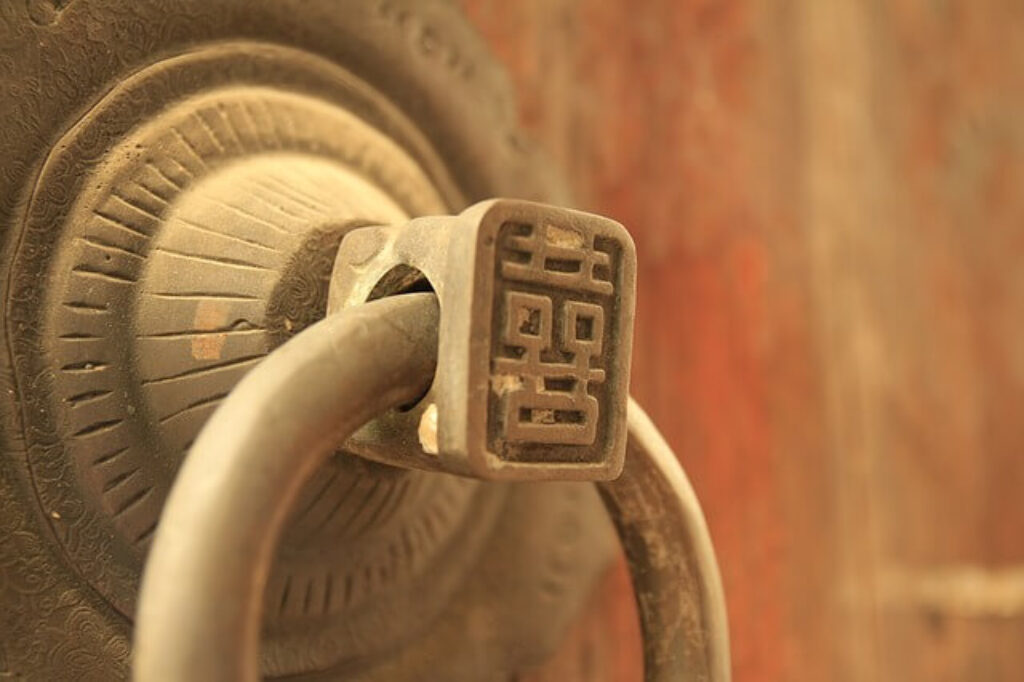
In Chinese calligraphy, the character xi translates to joy or happiness. Since Chinese characters are logograms and don’t constitute an alphabet, the double happiness symbol is formed by merging two characters of xi, which becomes shuangxi that translates to double happiness. In writing and typography, it’s commonly known as a form of ligature.
The symbol gained popularity during the Qing Dynasty in China, where the emperor’s wedding area was decorated with the double happiness symbol, found on lanterns and doors. At the grand wedding of Zaitian or Emperor Guangxu, the eleventh emperor of the dynasty, the double happiness motifs were featured on royal robes, worn by the Emperor and Empress Xiaoding.
It was also seen on ruyi scepters as the token of love and a symbol of good luck in imperial ceremonies. The symbol was thus linked to royalty and nobility, and quickly became a popular symbol in Chinese culture.
The Legend of the Double Happiness Symbol
The actual origins of the symbol can be traced back to a legend from the Tang Dynasty.
According to legend, a student was on his way to the capital to sit a royal examination to be a minister of the court. But on the way, he fell ill. At a mountain village, he was cared for by a herbalist and his young daughter. The student fell in love with the young girl. When the time came for the boy to leave, the girl gave him half of a rhyming couplet, hoping he would come back with its match.
After the student had passed the examination, the emperor gave him a final test. By chance, he was asked to complete a rhyming couplet, which happened to be the missing half to the girl’s couplet. The student completed the poem, and was able to impress the emperor, and marry the herbalist’s daughter in one fell swoop. On their wedding, they wrote the xi character twice on a red paper, which became the double happiness symbol we know today.
Double Happiness in Feng Shui
Because of its associations with love and marriage, the symbol is regarded as a classic feng shui cure. The art of geomancy values the importance of balance and symmetry, which makes the double happiness symbol a potent love charm.
Many believe that someone who is looking for true love can use it to find his partner. Also, it’s said to have the doubling effect which can amplify happiness, fortune, and success.
Meaning and Symbolism of the Double Happiness Symbol
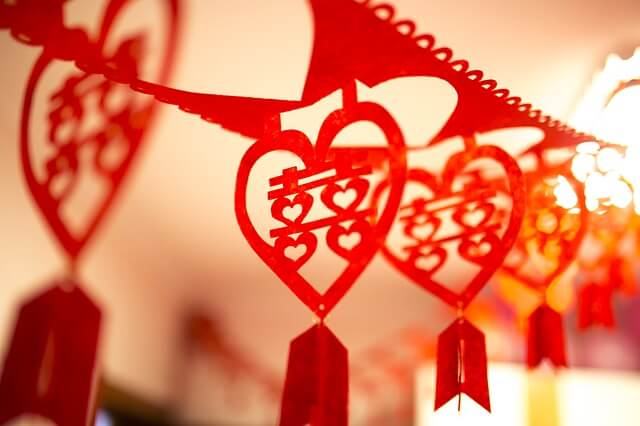
The significance of the double happiness symbol now goes beyond the Chinese culture and tradition. Here are the symbolic meanings of the calligraphy symbol today:
- A Symbol of Love and Harmony – In Chinese culture, there’s a saying that happiness comes in twos (think yin and yang or male and female), and the symbol itself makes the perfect representation for love and harmony in a relationship. It’s still used today in traditional weddings for couples to remain happily married.
- A Symbol of Loyalty – The symbol has many roles in romance and is believe to strengthen the relationship of unmarried couples. For singles, it’s commonly used as a charm to attract a loyal partner.
- A Symbol of Good Luck – While the custom of using the double happiness symbol originated from wedding traditions in China, it’s now common in various countries, including Vietnam, Hong Kong, Thailand, Indonesia, South Korea, Singapore, Turkey, and India.
During the Lunar New Year, it’s the common theme found on lantern displays, paper cutouts, centerpieces, and home decorations. Red and gold are considered the lucky colors, so there are also double happiness stickers on packaged goods and fruits, as well as beautifully decorated sweets, cookies, and macarons.
Double Happiness Symbol in Modern Times
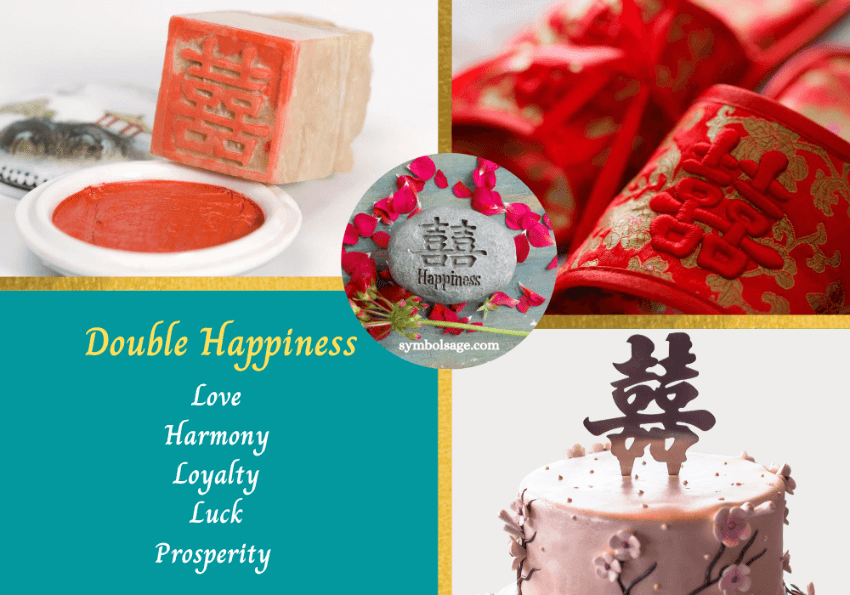
From wedding invitations to lanterns and tea sets, the double happiness symbol appears in red or gold, which is a lucky color for the ceremony. In traditional Chinese weddings, the motif is often featured on a red bridal gown, called qipao or cheongsam. Sometimes, it’s also found on chopsticks and wedding cakes. It’s also seen in decorations at the Palace of Earthly Tranquility in Forbidden City, China.
The use of the symbol now extends beyond weddings, as there are also scented candles, tableware, key chains, accessories, lamps, and other home decorations with the motif.
In jewelry, it’s seen on necklace pendants, earrings, rings, and charms, mostly made of silver or gold. Some designs are studded with gemstones while others are carved from wood or even jade. The symbol is also a popular tattoo design.
In Brief
Originating as a symbol of love and happiness in traditional Chinese weddings, the calligraphy symbol of double happiness has gained significance in feng shui as a good luck charm, and is widely used in home decorations, fashion, tattoos and jewelry, in hopes of attracting happiness, success, and good fortune.
